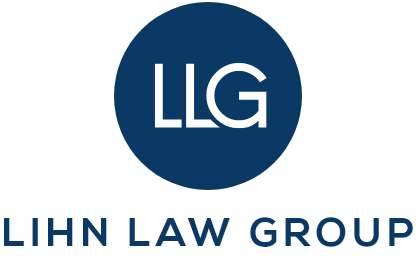Estate planning might sound like a subject best left to the wealthy, but it’s an essential process for anyone with assets or loved ones. Imagine your assets are like puzzle pieces, estate planning helps put them together into a clear picture showing what happens when you’re no longer around or if you’re unable to make decisions. Below is a broad overview to help you understand the basics of estate planning and why it’s something that everyone should consider.
Understanding the Importance of Estate Planning
Estate planning is much more than simply writing a will, it’s about ensuring that your wishes are respected when it comes to your financial assets, property, guardianship of your minor children, and even your health care decisions. Estate planning is also about protecting your loved ones.
- Financial Security: An estate plan ensures your assets are distributed according to your wishes, helping provide financial security for your family members or other beneficiaries.
- Peace of Mind: You gain peace of mind knowing that your loved ones are taken care of, and your legacy is managed exactly as you wish.
- Avoiding Family Disputes: An estate plan can prevent disputes between family members and ensure that everyone understands your intentions.
Key Components of an Estate Plan
An estate plan is a combination of legal documents that, together, establish your wishes and instructions. Let’s explore the key components:
- Last Will and Testament: A will specifies how you want your assets distributed and names a guardian for your minor children.
- Living Will: Sometimes known as an advance healthcare directive, a living will outlines your preferences for medical care if you cannot make decisions yourself.
- Financial Power of Attorney: This legal document allows you to delegate, to the person(s) you select, the authority to act on your behalf in financial or legal matters if you’re unable to do so.
- Health Care Power of Attorney: Similar to a financial power of attorney, this document designates someone to make medical decisions on your behalf.
- Mental Health Care Power of Attorney: Like a health care power of attorney, this document allows you to delegate legal decision-making regarding your mental health care (which often includes dementia-related treatment) to the trusted person(s) you select.
- Revocable Living Trust: Simplify the administration of your assets, so your loved ones have fewer legal hoops to jump through. Protect your loved one’s inheritance from divorce, creditors, bankruptcy, or lawsuits and ensure that your last wishes are carried out. Trusts are a powerful tool offering both flexibility and peace of mind.
- Beneficiary Designations: Life insurance policies, retirement accounts, and other investment accounts often allow you to specify beneficiaries directly. These designations can override a will, so it’s important to keep them updated. It’s also important to make sure your beneficiary designations flow consistent with the other portions of your estate plan.
Benefits of Estate Planning
- Avoiding Probate: A will must pass through probate, which can be a time-consuming and expensive process. Trusts and direct beneficiary designations can help your assets pass outside probate.
- Reducing Taxes: Thoughtful estate planning can minimize estate and inheritance taxes, ensuring more assets go to your beneficiaries.
- Providing for Dependents: An estate plan ensures that dependents, such as children, elderly parents, or special needs beneficiaries, are provided for according to your wishes.
- Business Succession: If you own a business, planning can establish how ownership or leadership will transition.
- Asset Protection for Loved Ones: A properly designed estate plan can protect the assets left to your loved ones from divorce, bankruptcy, lawsuits, or creditors.
Common Estate Planning Mistakes
- Not Having a Plan: One of the biggest mistakes is not having any estate plan at all. This leaves your assets subject to the default laws of your state and could result in unintended outcomes; this is especially true with blended families.
- Not Updating Your Plan: Life changes like marriage, divorce, births, and deaths can impact your estate plan. Regular updates ensure that your plan remains aligned with your current wishes.
- DIY Planning: While it’s possible to create your estate plan using online tools, these solutions may not cover all your specific needs. Consulting with an experienced attorney can save time and prevent costly mistakes.
- Neglecting Digital Assets: In today’s world, digital assets like social media accounts, digital currency, and cloud storage are significant. An estate plan should address who will have access to and manage these digital properties.
Taking Action on Your Estate Plan
If you’re ready to take the next step or update your existing estate plan, here’s a roadmap to guide you:
- Evaluate Your Assets: List your assets, including bank accounts, property, investments, and digital assets.
- Define Your Goals: Identify your key goals. Who do you want to inherit your assets? Who will care for your children? How can your loved ones respect your healthcare decisions?
- Consult Lihn Law Group: The team at Lihn Law Group can guide you through the design and creation of your estate plan, whether creating a new plan or updating an older plan.
- Inform Key People: Ensure that the executor of your will, your agents under your power of attorney, and your healthcare proxy know their roles and understand your wishes.
- Keep Your Plan Updated: Review and update your estate plan regularly (every three to five years) or after significant life events.
Why Start Now?
A common challenge when estate planning is procrastination, but there are compelling reasons to start now:
- Uncertainty of Life: Life is unpredictable, and having a plan in place brings peace of mind.
- Avoiding Future Costs: Proper planning now can reduce future costs for your loved ones by minimizing taxes and avoiding probate fees.
- Protecting Loved Ones: An estate plan ensures that your loved ones are taken care of and prevents potential disputes.
Conclusion
Estate planning isn’t just for the wealthy or elderly, it’s a crucial part of managing your assets and protecting your loved ones, regardless of your age or financial status. By understanding the basics and working with an attorney, you can ensure your estate plan reflects your current wishes and provides security for the future.
Whether you’re just beginning or updating a prior plan, taking these steps now can save your loved ones from future uncertainties and financial challenges. Click here to learn more about our Estate Planning services or by contacting Lihn Law Group today at (602) 887-5031 to learn how we can guide you in the next steps toward protecting yourself and your loved ones.






